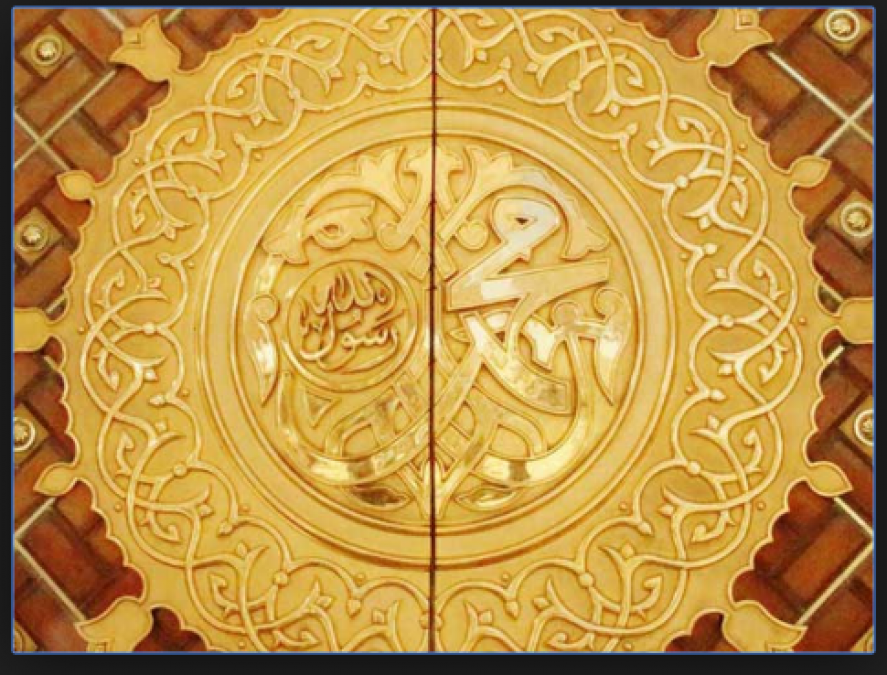
Islam teaches that God has sent prophets to humanity, in different times and places, to communicate His message. Since the beginning of time, God has sent His guidance through these chosen people. They were human beings who taught the people around them about faith in One Almighty God, and how to walk on the path of righteousness. Some prophets also revealed God's Word through books of revelation.
The Prophets' Message Muslims believe that all prophets gave guidance and instruction to their people about how to properly worship God and live their lives. Since God is One, His message has been one and the same throughout time. In essence, all prophets taught the message of Islam - to find peace in your life through submission to the One Almighty Creator; to believe in God and to follow His guidance.
The Quran on the Prophets "The Messenger believes in what has been revealed to him from his Lord, as do the men of faith. Each one of them believes in God, His angels, His books, and His Messengers. They say: 'We make no distinction between one and another of His Messengers.' And they say: 'We hear, and we obey. We seek Thy forgiveness, Our Lord, and to Thee is the end of all journeys.'" (2:285)
The Prophets' Names There are 25 prophets mentioned by name in the Quran, although Muslims believe that there were much more in different times and places. Among the prophets that Muslims honor are:
also read Christianity: The table of showbread inside the holy place, significance
Adam or Aadam, was the first human being, the father of the human race and the first Muslim. As in the Bible, Adam and his wife Eve (Hawa) were cast out of the Garden of Eden for eating the fruit of a certain tree.
Idris (Enoch) was the third prophet after Adam and his son Seth and identified as the Bible's Enoch. He was devoted to the study of the ancient books of his ancestors.
Nuh (Noah), was a man who lived among unbelievers and was called on to share the message of the existence of a single god, Allah. After many fruitless years of preaching, Allah warned Nuh of coming destruction, and Nuh built an ark to save pairs of animals.
Hud was sent to preach to the Arabic descendants of Nuh called 'Ad, desert traders who had yet to embrace monotheism. They were destroyed by a sandstorm for ignoring Hud's warnings.
Saleh, about 200 years after Hud, was sent to the Thamud, who were descendants of the 'Ad. The Thamud demanded that Saleh perform a miracle to prove his connection to Allah: To produce a camel out of rocks. After he had done so, a group of unbelievers plotted to have his camel killed, and they were destroyed by an earthquake or volcano.
Ibrahim (Abraham) is the same man as Abraham in the Bible, and widely honored and revered as a teacher and father and grandfather to other prophets. Muhammad was one of his descendants.
Isma'il (Ishmael) is Ibrahim's son, born to Hagar and an ancestor of Muhammad's. He and his mother were brought to Mecca by Ibrahim.
Ishaq (Isaac) is also Abraham's son in the Bible and the Quran, and both he and his brother Ismail continued to preach after Ibrahim's death.
Lut (Lot) was of Ibrahim's family who was sent to Canaan as the prophet to the doomed cities of Sodom and Gomorrah. Ya'qub (Jacob), also of the family of Ibrahim, was the father of the 12 Tribes of Israel. Yousef (Joseph), was Ya'qub's eleventh and most beloved son, whose brothers threw him in a well where he was rescued by a passing caravan.Shu'aib, sometimes associated with the Biblical Jethro, was a prophet sent to the Midianite community who worshipped a sacred tree. When they would not listen to Shuaib, Allah destroyed the community.
also read Christianity and violence: History from the middle ages over crusades